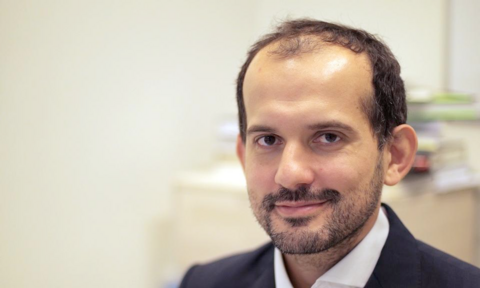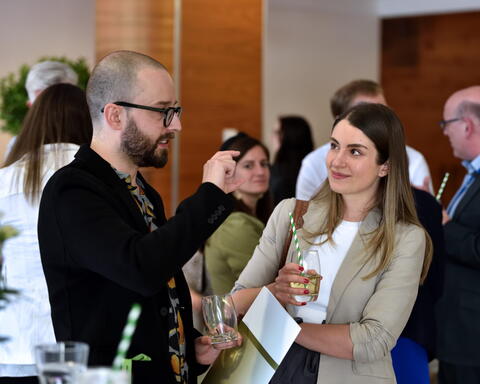Key information
Programme overview
The Professional Certificate in Machine Learning and Artificial Intelligence is an opportunity to acquire advanced technical expertise in machine learning and AI, along with the business acumen to put your knowledge into practice.
This 25-week online programme, developed jointly with the Department of Computing, will provide you with in-depth knowledge of fundamental and advanced concepts and trends in AI, the ability to determine when machine learning is feasible and can add value to business challenges, and the capacity to leverage the power of data and evaluate common machine learning methods to improve performance.
Throughout this programme, you will benefit from the deep knowledge of our expert faculty, learn from video lectures and hands-on activities, and receive personal support from programme advisors to help propel your career in machine learning and artificial intelligence. At the end of the programme, you will complete a hands-on capstone project.
You will finish the programme prepared to implement what you have learned, a job-ready portfolio to showcase your projects, and with a verified Digital Certificate from Imperial Executive Education.
Who should attend?
The Professional Certificate in Machine Learning and Artificial Intelligence requires a background in coding or mathematics. It is particularly relevant for professionals including:
- IT and Engineering professionals looking to receive hands-on training in ML and AI and upskill themselves in a high-growth field. Job titles may include software engineers and software developers.
- Data and business analytics professionals who wish to learn about the latest AI tools, techniques and applications to stay ahead of the curve and gain better growth trajectories. Job titles may include business analysts, senior data analysts and data scientists.
- Recent science, technology, engineering and mathematics (STEM) graduates and academics who are interested in being a part of a cutting-edge field with high growth potential and using technology to make a positive impact on the world.
Learning objectives
This programme will enable you to:
-
Understand fundamental and advanced concepts and trends in artificial intelligence, and its potential real-world implications
-
Determine when machine learning is feasible and can be applied to meaningfully address specific business challenges
-
Leverage the power of data and evaluate common machine learning methods to improve predictive performance and refine decision-making strategies
-
Develop and refine machine learning models using Python and industry-standard tools to measure and improve performance
-
Identify real-world problems and devise innovative solutions using machine learning models
Learning Journey
- Module 1: Programme Orientation
- Module 2: Introduction to Machine Learning
- Module 3: Probability for Machine Learning
- Module 4: Statistics for Machine Learning
- Module 5: Generalisation Theory and the Bias-Variance Trade-Off
- Module 6: Evaluating Predictive Performance
- Module 7: Advanced Topics in Performance Evaluation
- Module 8: Nearest Neighbour Methods
- Module 9: Decision Trees, Part I
- Module 10: Decision Trees, Part II
- Module 11: Naive Bayes
- Module 12: Bayesian Optimisation
- Module 13: Logistic Regression
- Module 14: Support Vector Machines
- Module 15: Unsupervised Learning
- Module 16: Principal Component Analysis
- Module 17: Introduction to Deep Learning
- Module 18: Neural Networks
- Module 19: Hyperparameters
- Module 20: Transparency and Interpretability
- Module 21: Convolutional Neural Networks
- Module 22: Biological Basis for Convolutional Neural Networks
- Module 23: Reinforcement Learning
- Module 24: Hyperparameter Tuning
- Module 25: Capstone Competition
Programme Faculty and Experts

Chris Tucci
Professor of Digital Strategy and Innovation
Professor Chris Tucci received the degrees of Ph.D. in Management from the Sloan School of Management, MIT; SM (Technology & Policy) from MIT; and BS (Mathematical Sciences), AB (Music), and MS (Computer Science) from Stanford University. He was an industrial computer scientist involved in developing Internet protocols and applying artificial intelligence tools.
Chris' primary area of interest is in how firms make transitions to new business models, technologies, and organisational forms. He also studies crowdsourcing, Internetworking, and digital innovations.

Professor Wolfram Wiesemann
Professor of Analytics & Operations
Professor Wiesemann is Professor of Analytics & Operations at Imperial Business School, where he also serves as the Academic Director of the MSc Business Analytics programme. His teaching focuses on linear, discrete, and nonlinear optimisation and the theory, algorithms and applications of machine learning. He also teaches prescriptive analytics.
Wolfram holds a joint master's degree in management and computing from Darmstadt University of Technology, and a PhD in operations research from Imperial London. He is also a Fellow of the KPMG Centre for Advanced Business Analytics.

Ruth Misener
Professor, Computational Optimisation
Professor Ruth Misener is a Professor of Computational Optimisation in the Department of Computing at Imperial London. Her research focuses on numerical optimisation algorithms and computational software frameworks, with current applications including bioprocess optimisation under uncertainty and petrochemical process network design and operations.
Ruth earned a BS in chemical engineering from the Massachusetts Institute of Technology and a PhD in chemical engineering from Princeton University. She is the recipient of numerous awards and fellowships and is currently an EPSRC Early Career Research Fellow at Imperial London

Alex Ribeiro Castro
Data Scientist, Senior Teaching Fellow
Dr Alex Ribeiro-Castro is a Data Scientist and Senior Teaching Fellow with the Operations Management Department at Imperial Business School. He also teaches on the Global Business Analytics MSc. In addition, he has more than 10 years of teaching experience in pure and applied mathematics at institutions across the globe. He has more than five years of consultancy experience, including machine learning and optimisation problems, in industries such as fintech, health, energy, and more recently in retail.
Alex holds an MA and a PhD in mathematics from the University of California (Santa Cruz) and a professorship in mathematics from the Pontifical Catholic University (PUC-Rio)
Become an Associate Alumni
Take your partnership with Imperial Business School to the next level by becoming an Associate Alumni. Complete one (1) of our on-campus, online, and virtual programmes to claim 'Associate Alumni' status and join our active alumni community.

